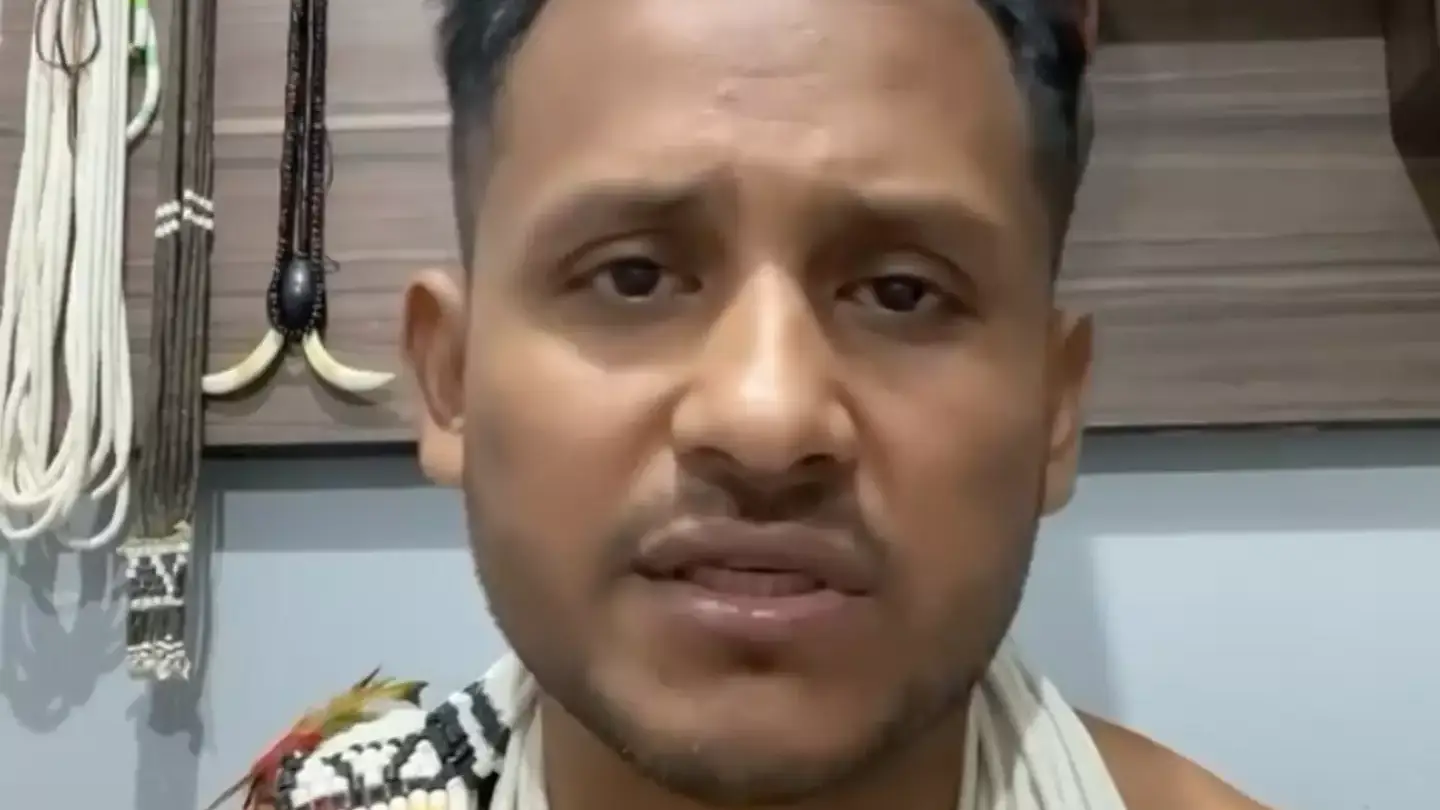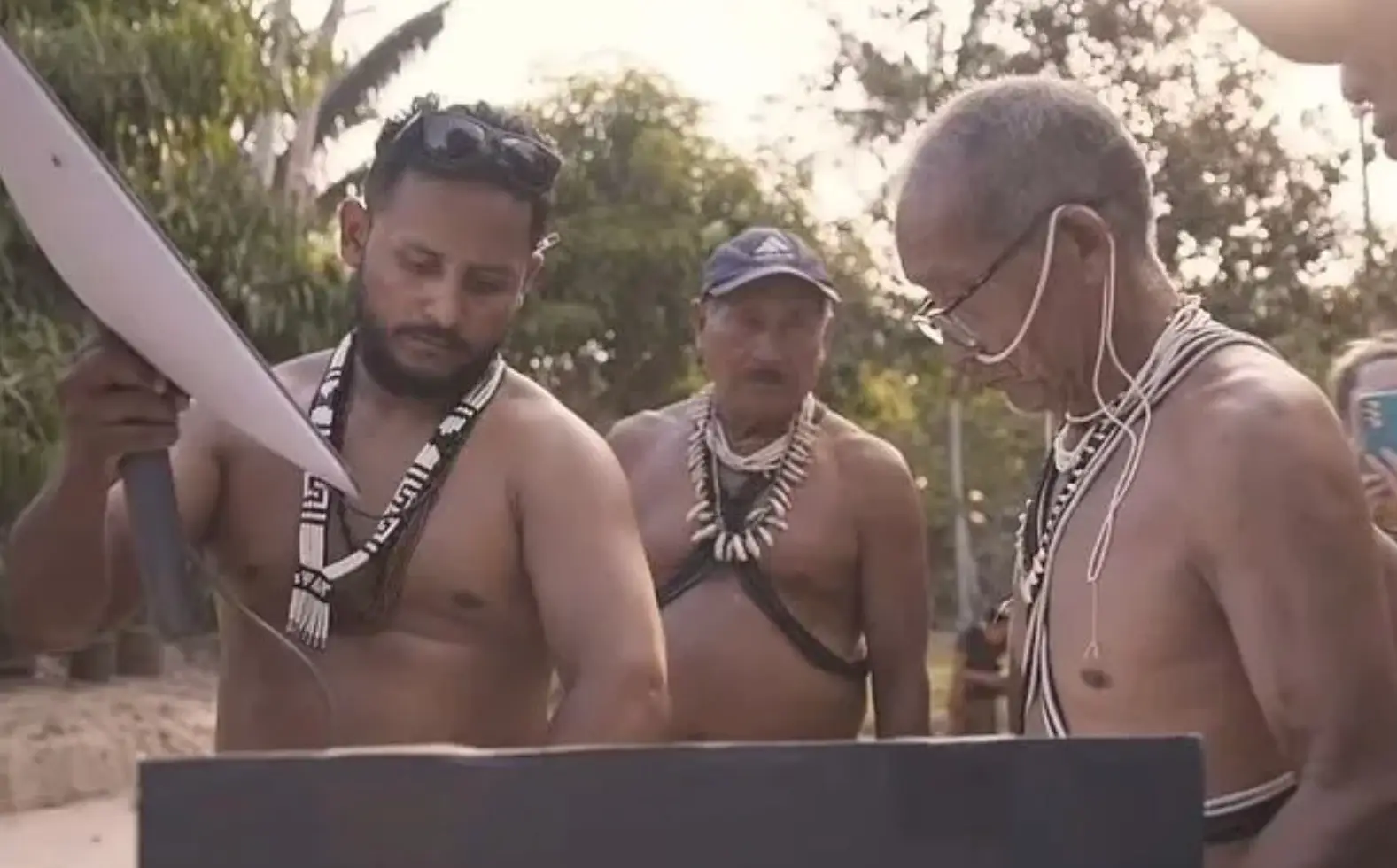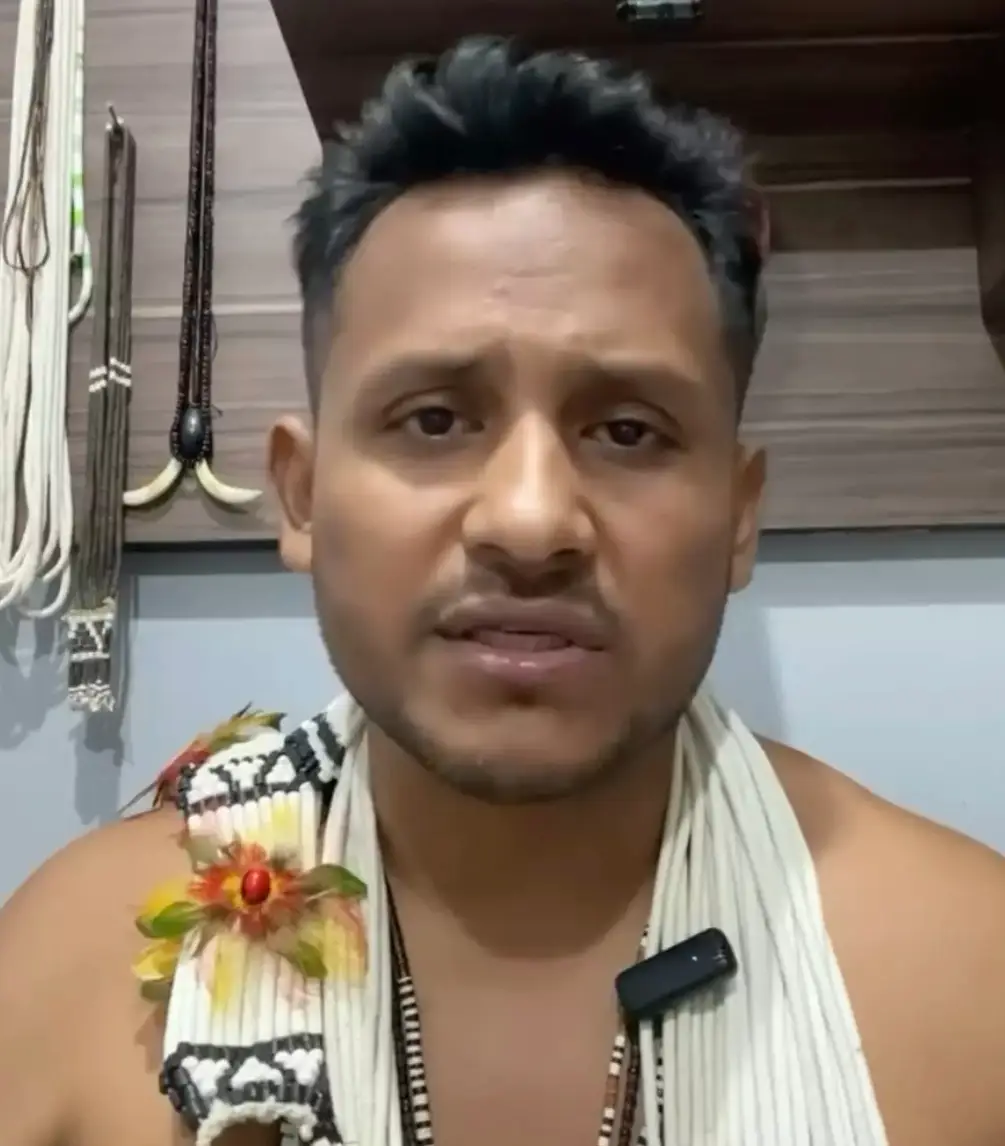
A remote tribe that lives deep in the Amazon rainforest spoke out after reports that internet access led to some members being addicted to porn went viral.
After living in isolation for hundreds of years while blissfully unaware of what words like Instagram, TikTok or Snapchat mean, Brazil's Marubo people were ushered into the 21st century by Elon Musk.
The 2,000-member tribe gained access to the tech tycoon's satellite internet service Starlink in 2022 after carrying two antennas deep into the rainforest.
Prior to this, none of them had ever surfed the web - so for better or for worse, giving the Marubo people an internet connection was going to have a big impact.
Advert
Nine months after the tribe had gotten to grips with it, members of the indigenous group revealed how it had changed things for them.
Once their comments went viral, an elder slammed the reports as 'unfounded lies' and insisted the web as an 'important tool' for them.
"When it arrived, everyone was happy," Tsainama Marubo previously told the New York Times, explaining video calls and accessing information so easily had blown their minds.
"But now, things have gotten worse," she said. "Young people have gotten lazy because of the internet. They’re learning the ways of the white people."
What was a gradual descent into dependency on technology for the rest of the world was a rapid one for the Marubo people, according to Tsainama.
Despite her berating the youngsters for their obsession with the digital realm, she also added: "But please don’t take our internet away."
A lot of the tribe's elders soon began to realise there were a lot of negatives which come with having technology at your fingertips, and so they set daily limits on when Starlink could be used.
During the windows where it was switched on, members were glued to their phones - and apparently, it was WhatsApp in particular which had the majority of people in a chokehold.
Alfredo Marubo, leader of a Marubo association of villages, said: "Everyone is so connected that sometimes they don’t even talk to their own family."
The tribe’s first woman leader, TamaSay Marubo, added: "Some young people maintain our traditions. Others just want to spend the whole afternoon on their phones."
But there were some advantages to Starlink's arrival, as another Marubo leader, Enoque Marubo, explained.

He believed their internet access would allow the tribe to tell their own stories to the world, as well as give them a vital method of communication in emergencies.
"It's already saved lives," Enoque said.
In claims that have since been debunked by a tribal leader, Alfredo told the New York Times he was concerned about the access young members now had to adult content thanks to Starlink. He warned that he had already seen young lads sharing explicit videos in group chats.
"We’re worried young people are going to want to try it," he said of pornographic clips they had begun to consume, which he claimed had already prompted wayward sexual behaviour from young men.
But after the New York Times article was published, Marubo leader Enoque Marubo rubbished the claims that the tribe had become 'addicted' to watching X-rated clips.

In a video posted to Instagram in June 2024, he said: "I am here to repudiate the fake news that has been circulating around the world in the last week, alleging that the entry of the internet into our communities has resulted in addiction to pornography. These statements are unfounded, false and only reflect a biased ideological current that disrespects our autonomy and identity."
Enoque also criticised the publication's focus on the negative impacts of the internet, which he said has led to a distorted view of the Marubo people being perpetuated.
"I want to reiterate the repudiation [of] all these publications of unfounded lies that appeared on the internet," he said, while describing the web as an 'important tool' for his people.
He then went on to highlight some of the positive impacts the internet has had, including facilitating communication, assisting teachers and enhancing security.
Enoque also emphasised the Marubo tribe's desire for autonomy, criticising 'non-Indigenous or white people' who try to dictate what is best for them.
"We want our autonomy and we are tired of the violation of our rights," he said. "It hurts us, disrespects us, disrespects Indigenous peoples."
Topics: World News, Technology, Adult Industry